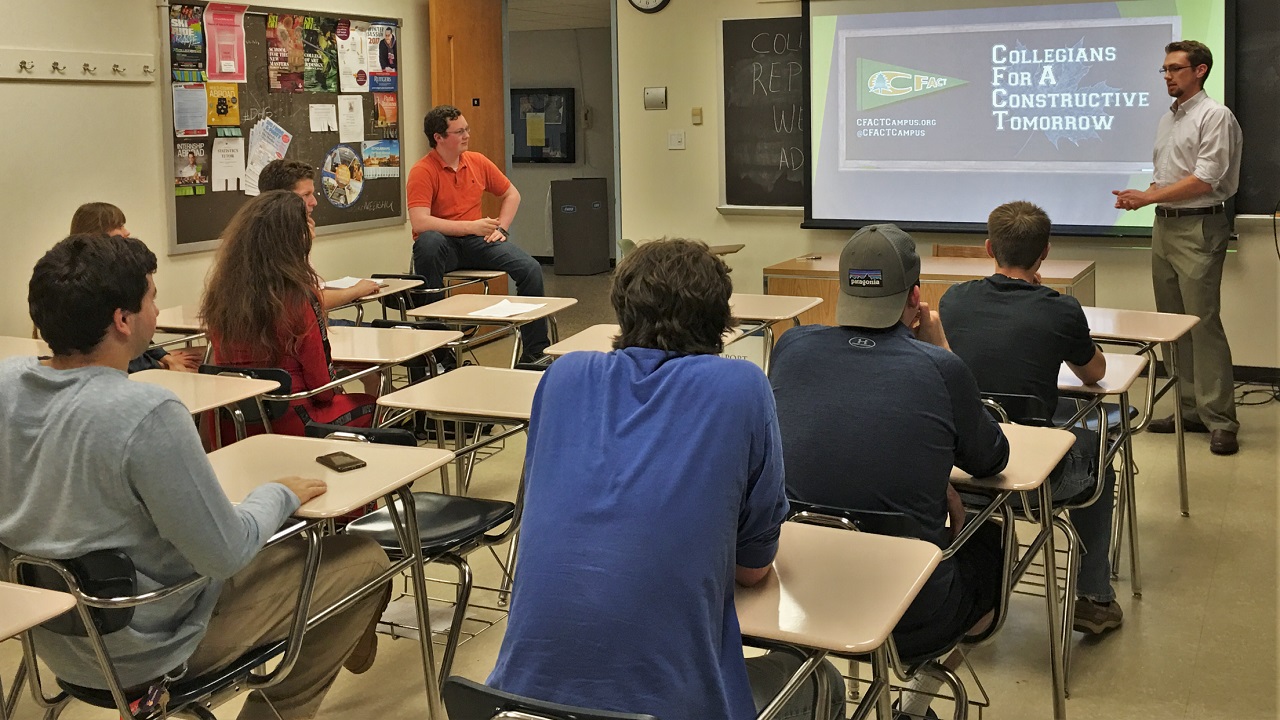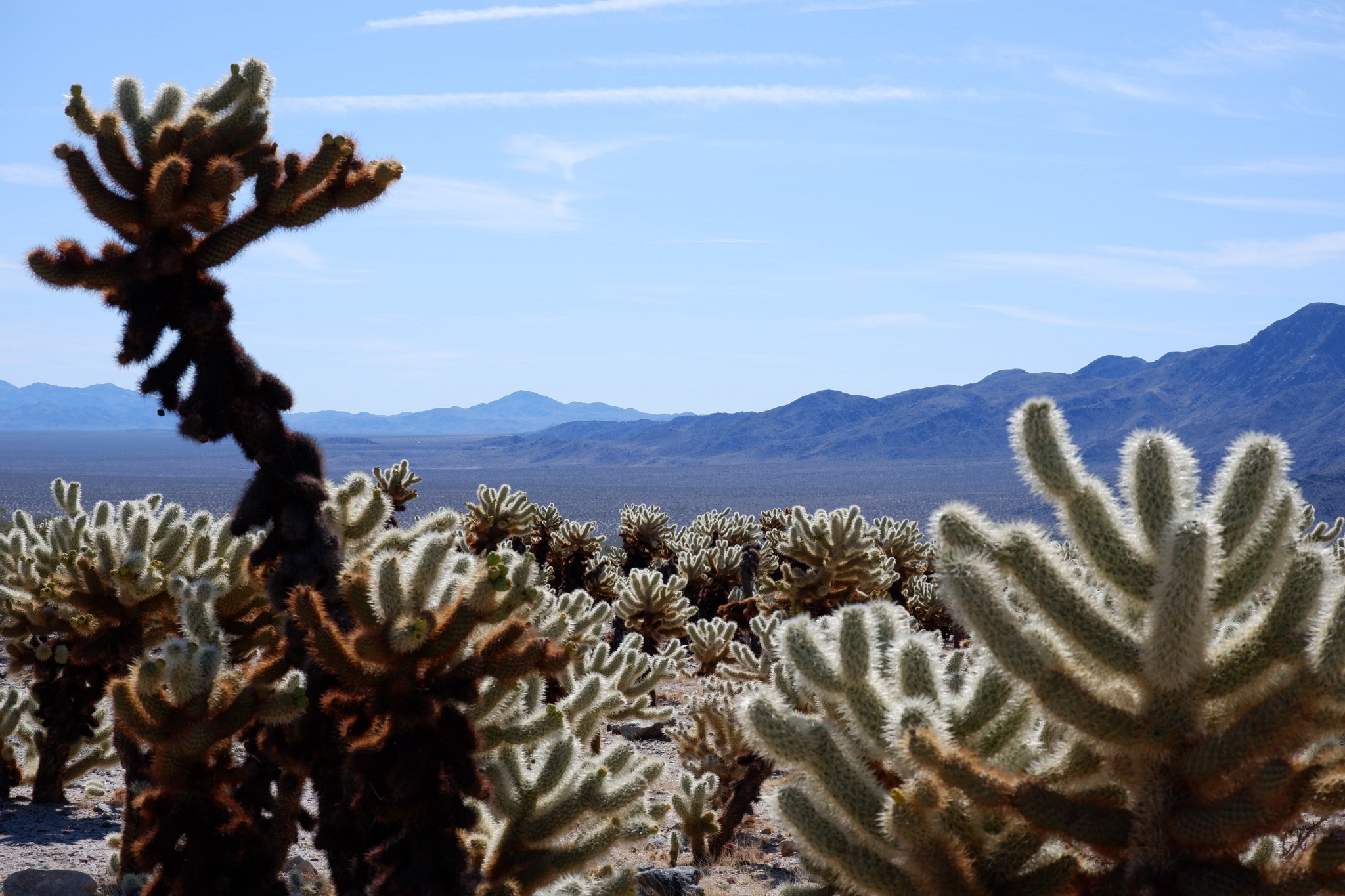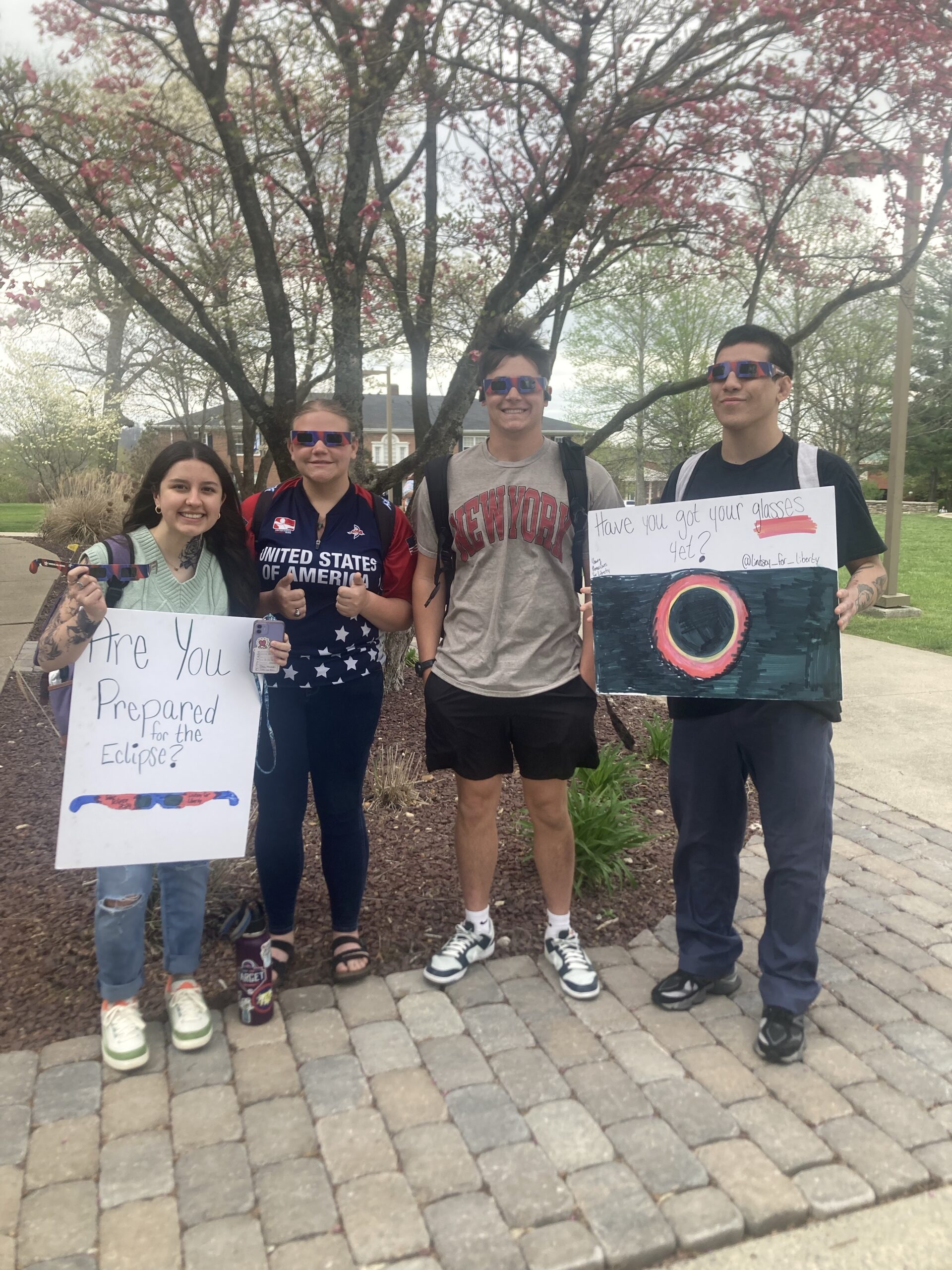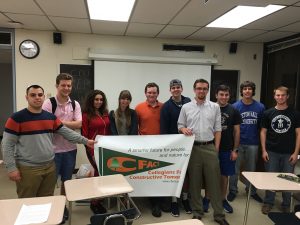 What if I told you fracking was “greener” than renewables? What if I told you game hunting was the only way to save endangered species? What if the climate changes naturally?
What if I told you fracking was “greener” than renewables? What if I told you game hunting was the only way to save endangered species? What if the climate changes naturally?
These were just a few of the questions CFACT’s National Director of Collegians Adam Houser addressed with student activists at Seton Hall University in South Orange, New Jersey.
“I like to bring up issues that defy the traditional conceptions students have,” Houser said. “From kindergarten, many of these collegians have heard that things like fracking are destroying the planet, we need to protect animals from hunting, and climate change is going to make the Statue of Liberty go under water in 5 years. In fact, all the opposite are true.”
To discredit the left’s claims on global warming, Houser used their own scare tactics against them. Showing headlines that say “Global warming is 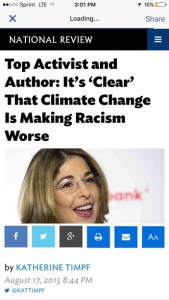 killing our sex drive,” “Climate change is making racism worse,” and “Sanders doubles down: Climate change causes terrorism,” he had the students laughing and second guessing much of
killing our sex drive,” “Climate change is making racism worse,” and “Sanders doubles down: Climate change causes terrorism,” he had the students laughing and second guessing much of 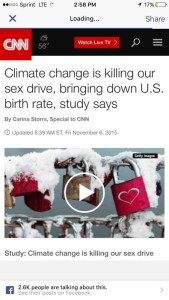 the fear mongering they hear on the news every single day.
the fear mongering they hear on the news every single day.
Switching to game hunting, Houser showed how free markets can solve environmental problems. According to the Division of Fish and Wildlife, there were 324 TOTAL bison left in the USA in 1884. After private ranchers began herding and breeding the animals, however, the population began to recover, leading to the more than 270,000 bison alive today. Referring to the Scimitar-Horned Oryx, which is extinct in the wild but thriving on private ranches, the Division of Fish and Wildlife said in 2012: “Hunting…provides an economic incentive to continue to breed these species…hunting reduces the threat of the species’ extinction.” If world leaders want to save animals, especially elephants, from extinction, they will let local people own and trade the animals so that they can thrive.
Then Houser addressed fracking. Hydraulic fracturing, or “fracking,” is a process that uses water mixture to break up shale rock and release natural gas from deep within the Earth. The process has led to reduced gas prices nationally, and is revolutionizing American energy. Not only that, it is having a significantly smaller impact on the environment than even so called “green” energy like solar, wind and biofuels.
Fracking has been under intense attack from the left. They have made alarmist claims that fracking is polluting water, contributing to increased carbon emissions, and destroying habitats. Unfortunately for radical environmentalists, all of these claims are patently false.
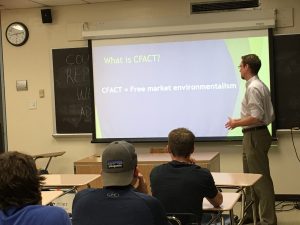 “In June of 2015, the EPA of the Obama administration proclaimed that after an extensive study fracking was not causing any widespread harm to drinking water.” Houser went on, “in 2012, as fracking and reliance on natural gas boomed, U.S. carbon emissions decreased by 8% when compared to 2002 levels. Fracking uses 3 gallons of water per million BTUs produced, while ethanol and soy biodiesel use a combined 60,300 gallons per
“In June of 2015, the EPA of the Obama administration proclaimed that after an extensive study fracking was not causing any widespread harm to drinking water.” Houser went on, “in 2012, as fracking and reliance on natural gas boomed, U.S. carbon emissions decreased by 8% when compared to 2002 levels. Fracking uses 3 gallons of water per million BTUs produced, while ethanol and soy biodiesel use a combined 60,300 gallons per 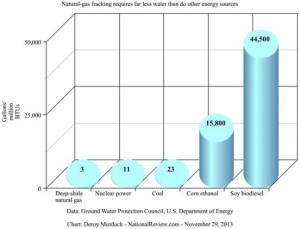 million BTUs produced! Finally, fracking uses 0.4 acre of land to generate a year’s supply of electricity for 1,000 households. Solar and wind use a combined 14.4 acres to supply the same amount of electricity!”
million BTUs produced! Finally, fracking uses 0.4 acre of land to generate a year’s supply of electricity for 1,000 households. Solar and wind use a combined 14.4 acres to supply the same amount of electricity!”
The talk left an impact on the student activists in attendance. Eddie Colombo, a senior, said, “I think the most interesting aspect of the presentation was realizing how little we understood about free market environmentalism. I wish more young people were exposed to the solutions posed by competition and seemingly counter-intuitive practices. The group learned a great deal about the benefits of fracking, and the preservation of endangered species. It certainly sparked a great deal of interest among our members and I wish more organizations were exposed to this line of thinking.”
Houser’s presentation was a part of CFACT’s Keep Calm Climate Changes and Frack U campaigns, which aim to fight the alarmism that is rampant on college campuses concerning climate change and fracking.
